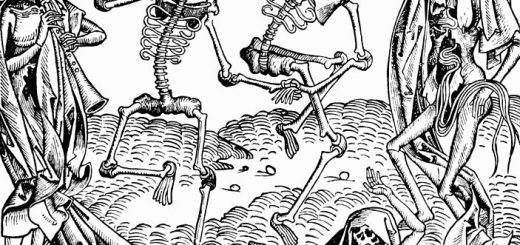The Plucky Maiden
[Han Myong-hoi.–We are told in the Yol-ryok Keui-sul that when Han was a boy he had for protector and friend a tiger, who used to accompany him as a dog does his master. One evening, when he started off into the hills, he heard the distant tramp of the great beast, who had got scent of his going, and had come rushing after him. When Han saw him he turned, and said, “Good old chap, you come all this distance to be my friend; I love you for it.” The tiger prostrated himself and nodded with his head several times. He used to accompany Han all through the nights, but when the day dawned he would leave him.
Han later fell into bad company, grew fond of drink, and was one of the boisterous companions of King Se-jo.]
Han Myong-hoi was a renowned Minister of the Reign of Se-jo (A.D. 1455-1468). The King appreciated and enjoyed him greatly, and there was no one of the Court who could surpass him for influence and royal favour. Confident in his position, Han did as he pleased, wielding absolute power. At that time, like grass before the wind, the world bowed at his coming; no one dared utter a word of remonstrance.
When Han went as governor to Pyong-an Province he did all manner of lawless things. Any one daring to cross his wishes in the least was dealt with by torture and death. The whole Province feared him as they would a tiger.
On a certain day Governor Han, hearing that the Deputy Prefect of Son-chon had a very beautiful daughter, called the Deputy, and said, “I hear that you have a very beautiful daughter, whom I would like to make my concubine. When I am on my official rounds shortly, I shall expect to stop at your town and take her. So be ready for me.”
The Deputy, alarmed, said, “How can your Excellency say that your servant’s contemptible daughter is beautiful? Some one has reported her wrongly. But since you so command, how can I do but accede gladly?” So he bowed, said his farewell, and went home.
On his return his family noticed that his face was clouded with anxiety, and the daughter asked why it was. “Did the Governor call you, father?” asked she; “and why are you so anxious? Tell me, please.” At first, fearing that she would be disturbed, he did not reply, but her repeated questions forced him, so that he said, “I am in trouble on your account,” and then told of how the Governor wanted her for his concubine. “If I had refused I would have been killed, so I yielded; but a gentleman’s daughter being made a concubine is a disgrace unheard of.”
The daughter made light of it and laughed. “Why did you not think it out better than that, father? Why should a grown man lose his life for the sake of a girl? Let the daughter go. By losing one daughter and saving your life, you surely do better than saving your daughter and losing your life. One can easily see where the greater advantage lies. A daughter does not count; give her over, that’s all. Don’t for a moment think otherwise, just put away your distress and anxiety. We women, every one of us, are under the ban, and such things are decreed by Fate. I shall accept without any opposition, so please have no anxiety. It is settled now, and you, father, must yield and follow. If you do so all will be well.”
The father sighed, and said in reply, “Since you seem so willing, my mind is somewhat relieved.” But from this time on the whole house was in distress. The girl alone seemed perfectly unmoved, not showing the slightest sign of fear. She laughed as usual, her light and happy laugh, and her actions seemed wonderfully free.
In a little the Governor reached Son-chon on his rounds. He then called the Deputy, and said, “Make ready your daughter for to-morrow and all the things needed.” The Deputy came home and made preparation for the so-called wedding. The daughter said, “This is not a real wedding; it is only the taking of a concubine, but still, make everything ready in the way of refreshments and ceremony as for a real marriage.” So the father did as she requested.
On the day following the Governor came to the house of the Deputy. He was not dressed in his official robes, but came simply in the dress and hat of a commoner. When he went into the inner quarters he met the daughter; she stood straight before him. Her two hands were lifted in ceremonial form, but instead of holding a fan to hide her face she held a sword before her. She was very pretty. He gave a great start of surprise, and asked the meaning of the knife that she held. She ordered her nurse to reply, who said, “Even though I am an obscure countrywoman, I do not forget that I am born of the gentry; and though your Excellency is a high Minister of State, still to take me by force is an unheard-of dishonour. If you take me as your real and true wife I’ll serve you with all my heart, but if you are determined to take me as a concubine I shall die now by this sword. For that reason I hold it. My life rests on one word from your Excellency. Speak it, please, before I decide.”
The Governor, though a man who observed no ceremony and never brooked a question, when he saw how beautiful and how determined this maiden was, fell a victim to her at once, and said, “If you so decide, then, of course, I’ll make you my real wife.”
Her answer was, “If you truly mean it, then please withdraw and write out the certificate; send the gifts; provide the goose; dress in the proper way; come, and let us go through the required ceremony; drink the pledge-glass, and wed.”
The Governor did as she suggested, carried out the forms to the letter, and they were married.
She was not only a very pretty woman, but upright and true of soul—a rare person indeed. The Governor took her home, loved her and held her dear. He had, however, a real wife before and concubines, but he set them all aside and fixed his affections on this one only. She remonstrated with him over his wrongs and unrighteous acts, and he listened and made improvement. The world took note of it, and praised her as a true and wonderful woman. She counted herself the real wife, but the first wife treated her as a concubine, and all the relatives said likewise that she could never be considered a real wife. At that time King Se-jo frequently, in the dress of a commoner, used to visit Han’s house. Han entertained him royally with refreshments, which his wife used to bring and offer before him. He called her his “little sister.” On a certain day King Se-jo, as he was accustomed, came to the house, and while he was drinking he suddenly saw the woman fall on her face before him. The King in surprise inquired as to what she could possibly mean by such an act. She then told all the story of her being taken by force and brought to Seoul. She wept while she said, “Though I am from a far-distant part of the country I am of the gentry by ancestry, and my husband took me with all the required ceremonies of a wife, so that I ought not to be counted a concubine. But there is no law in this land by which a second real wife may be taken after a first real wife exists, so they call me a concubine, a matter of deepest disgrace. Please, your Majesty, take pity on me and decide my case.”
The King laughed, and said, “This is a simple matter to settle; why should my little sister make so great an affair of it, and bow before me? I will decide your case at once. Come.” He then wrote out with his own hand a document making her a real wife, and her children eligible for the highest office. He wrote it, signed it, stamped it and gave it to her.
From that time on she was known as a real wife, in rank and standing equal to the first one. No further word was ever slightingly spoken, and her children shared in the affairs of State.
-Korean Folk Tales, Imps, Ghosts and Faries by Im Bang & Yi Ryuk (Translated by James S. Gale) [Published 1913]




Recent Comments